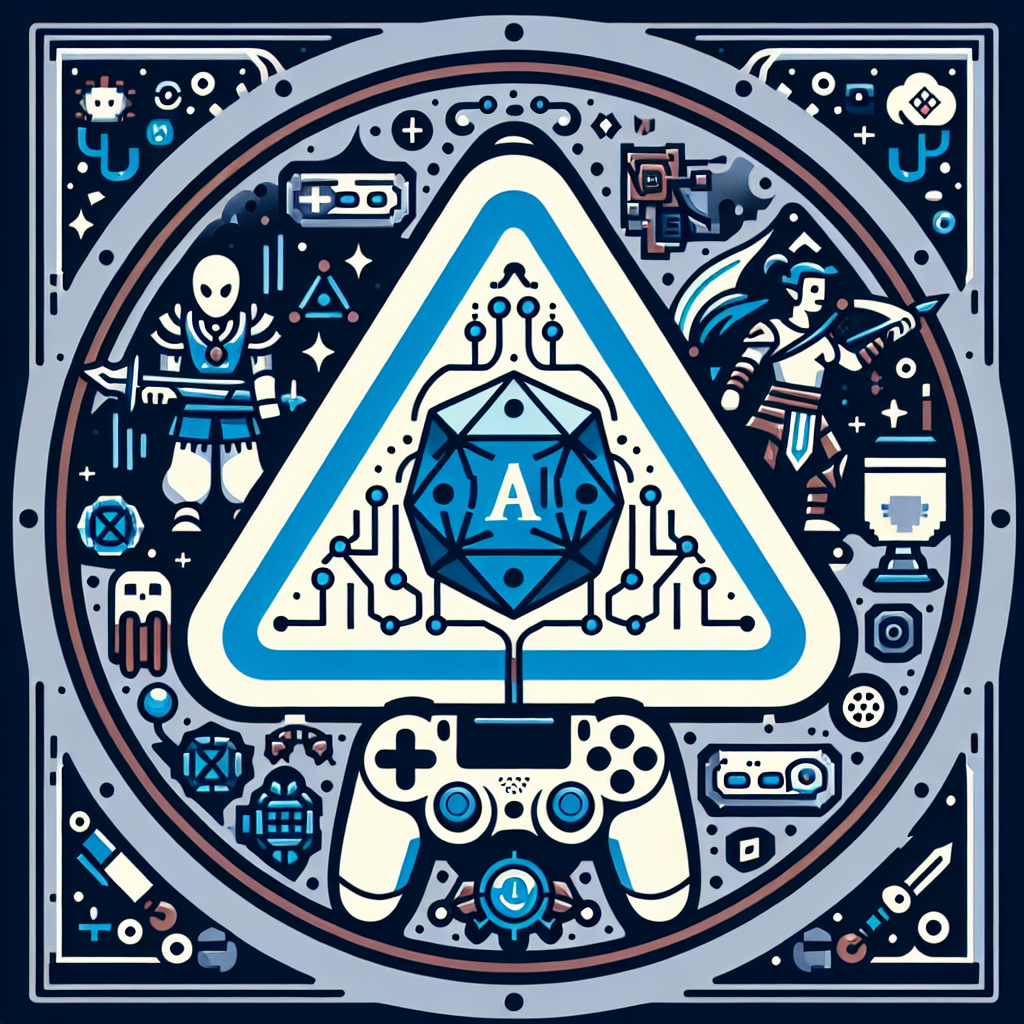In recent years, the gaming industry has seen a rapid advancement in the use of artificial intelligence (AI) to enhance game narratives. AI technologies such as machine learning, natural language processing, and computer vision have revolutionized the way game developers create immersive and dynamic storytelling experiences for players. This article will explore the impact of AI on game narratives and how it is shaping the future of gaming.
AI in Game Narratives
AI has the potential to transform game narratives in several ways. One of the most significant impacts of AI on game narratives is its ability to create dynamic and adaptive storytelling experiences. Traditionally, game narratives have been static, with predetermined plotlines and outcomes. However, AI can analyze player behavior in real-time and adjust the narrative to suit the individual player’s preferences and choices. This level of personalization can make the gaming experience more engaging and immersive for players, as they feel like they are actively shaping the story as they play.
Another way AI is changing game narratives is through the creation of non-player characters (NPCs) that are more lifelike and realistic. AI-powered NPCs can exhibit complex behaviors, emotions, and decision-making processes, making them feel more like real people rather than scripted characters. This can add depth and richness to the game world, as players interact with NPCs that respond intelligently to their actions and choices.
AI can also enhance the storytelling capabilities of games by generating dynamic dialogue and narrative content. Natural language processing algorithms can analyze text data and generate dialogue that is contextually relevant to the game’s story and setting. This can save developers time and resources by automating the creation of dialogue and narrative content, while also ensuring that the storytelling remains consistent and engaging for players.
Furthermore, AI can be used to enhance the visual and audio aspects of game narratives. Computer vision algorithms can analyze visual data and generate realistic graphics and animations that bring the game world to life. Similarly, AI-powered sound engines can create dynamic and immersive audio experiences that enhance the atmosphere and mood of the game. By leveraging AI technologies, game developers can create more compelling and immersive storytelling experiences that captivate players and keep them engaged for hours on end.
Challenges and Opportunities
While AI has the potential to revolutionize game narratives, there are also challenges and opportunities that developers must consider. One of the main challenges of using AI in game narratives is the complexity of implementing and integrating AI technologies into game development pipelines. Developers need to have a solid understanding of AI algorithms and tools, as well as the resources and expertise to implement them effectively. Additionally, AI-powered game narratives require large amounts of data to train and optimize the algorithms, which can be time-consuming and costly for smaller game studios.
Another challenge of using AI in game narratives is the ethical considerations surrounding AI-powered storytelling. AI algorithms can inadvertently perpetuate biases or stereotypes in the narrative content they generate, which can have negative repercussions on player experience and perception. Developers need to be mindful of these ethical considerations and take steps to mitigate bias and ensure that the narrative content is inclusive and respectful of diverse perspectives.
Despite these challenges, there are also opportunities for developers to leverage AI in game narratives to create innovative and engaging storytelling experiences. AI technologies can help developers explore new storytelling techniques and game mechanics that were previously not possible with traditional methods. For example, AI-powered procedural generation algorithms can create endless variations of game worlds and storylines, offering players a unique and unpredictable experience each time they play.
Furthermore, AI can enable developers to create more interactive and dynamic narratives that respond to player input and choices in real-time. By analyzing player behavior and preferences, AI algorithms can adapt the narrative to suit the player’s playstyle and create a more personalized and engaging experience. This level of personalization can help developers build stronger connections with players and foster a sense of immersion and investment in the game world.
FAQs
Q: How is AI used in creating game narratives?
A: AI is used in creating game narratives by analyzing player behavior, generating dynamic dialogue and narrative content, creating lifelike NPCs, and enhancing visual and audio aspects of the game.
Q: What are the benefits of using AI in game narratives?
A: The benefits of using AI in game narratives include creating dynamic and adaptive storytelling experiences, generating realistic NPCs, automating the creation of dialogue and narrative content, and enhancing the visual and audio aspects of the game.
Q: What are the challenges of using AI in game narratives?
A: The challenges of using AI in game narratives include the complexity of implementing and integrating AI technologies, the ethical considerations surrounding AI-powered storytelling, and the need for large amounts of data to train and optimize the algorithms.
Q: What opportunities does AI offer for game developers in creating game narratives?
A: AI offers opportunities for game developers to explore new storytelling techniques and game mechanics, create interactive and dynamic narratives that respond to player input, and build stronger connections with players through personalized storytelling experiences.
In conclusion, AI is revolutionizing game narratives by creating dynamic and immersive storytelling experiences that engage players on a deeper level. By leveraging AI technologies, game developers can create personalized and adaptive narratives that respond to player input and choices, as well as generate lifelike NPCs, dynamic dialogue, and realistic visual and audio experiences. While there are challenges and ethical considerations to consider, the opportunities for innovation and creativity in game narratives are vast with the use of AI. As AI continues to advance, we can expect to see even more groundbreaking storytelling experiences in the world of gaming.

